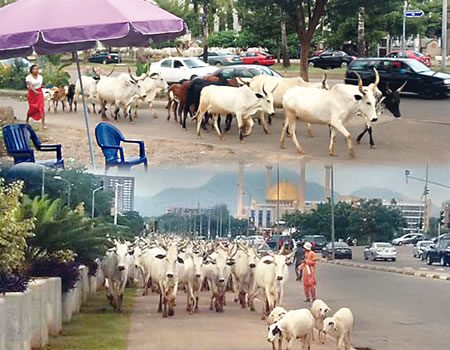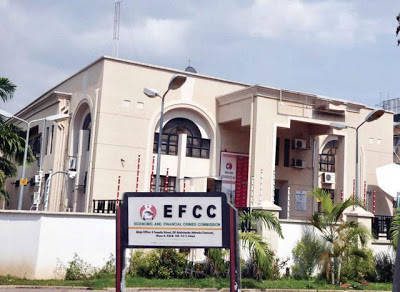National Issues
What Is ‘Sheer Barbarism’ Is Cross-Country Grazing In 2019 -By Ugoji Egbujo
Many state governments already have ranches and farm settlements. They should be rehabilitated and put to use. But the soul of a cattle business that will endure will be private ranches and scientific completion. The federal government can help with sourcing modern breeds and agricultural extension services. Let private ranches sprout everywhere.

A man sets out with cattle and roams from Timbuktu to Calabar, on foot. And that is his life in 2019? He has no shelter. He has no education. He has no healthcare. He lives a wretched and perilous vagrant life. And we say he is entitled to live so dangerously in the name of freedom?
They say the Constitution grants him freedom of movement with his goods. But the Constitution ought to protect him even from ignorance. The laws should protect him from himself and his hazardous freedom. And from the avarice of callous cattle owners. We have signed up to conventions against human and animal cruelty and against slavery. The laws should grant the herdsman human dignity. Cross-country grazing is a stone age culture.
This is 2019. We are behind. Our cattle industry should be a goldmine. But we have shackled our modern selves with the practices of our ancestors who lived in the dark. The modern cattle industry is led by scientists and big businesses, supported by banks. It’s not a walkabout in the bush with starving cattle. The ranches are scientific projects. The focus is on yield and cost. Stronger and more prolific breeds. Heavier yields in milk and beef. Nobody in the world grooms cattle for marathons. The industry has no room to sentimental addiction to unproductive, noncompetitive, unhealthy toil or culture.
A bull with the finest of genes could be worth as much as N360 million. Yes, $1 dollars. Its sperm cells are fetched and sold at

That is where the industry is in the United States. That is where
We must outlaw cross-country grazing immediately.
We have outlawed bucket toilets, the shalangas. Open cross-country grazing is another affront to human dignity. We have outlawed riding on motorbikes without helmet. Open cross-country grazing exposes the herders to more danger than riding without helmets. We have outlawed driving without seat belts. We did it because of public safety. We did it to protect drivers against their own negligence and recklessness. We must outlaw cross-country grazing. We cannot allow herdsmen to expose themselves to criminals and cattle rustlers in the wild and expose the communities to the rampant violence that frictions from open cross-country grazing has begun to bring.
Freedoms can be circumscribed. They are legitimately circumscribed when curtailed for reasons of public health and public safety. Intrusions are legitimate if they are the minimum necessary to achieve the stated public aims. A countrywide ban on open cross-country grazing is legitimate and long overdue. Laws can limit choices, if this takes away harmful options and improves humanity, personal and collective autonomy.
A man sets out with his cattle and roams from Sokoto to Calabar. It’s the culture he knows. He wanders over 1500 kilometres because he has to feed his cattle. He withers, his cattle shrivels. He is unaware of the other man, his professional colleague in Brazil or India. He has no education. He stoically wades through the perils and makes a pittance for his gruesome labour. The burden of the endless journeys wearies his cattle and drains them of beef and milk. This is slavery.
The other man in Brazil stays on his ranch and his cattle leisurely feed on juicy grasses. They have been called to the same trade. One society is mindful of human dignity and modern trends and has prospered. The other is shortsighted and is stuck to the past. The shortsighted society allows its members to roam freely in ignorance. And reaps the harvest of poverty, illiteracy and violence that come with it.
Our cattle industry should be a gold mine. But we must send the herders to school to learn modern animal husbandry. And we must shelter and pamper the animals for better productivity. We must borrow from those who have succeeded in their methods and techniques. We stopped child labour. It’s slavery. We established labour laws to stamp out exploitation and inhumanity. Why then have we let the herders live like wild animals?
Many state governments already have ranches and farm settlements. They should be rehabilitated and put to use. But the soul of a cattle business that will endure will be private ranches and scientific completion. The federal government can help with sourcing modern breeds and agricultural extension services. Let private ranches sprout everywhere. Let the state governments allocate lands generously to businesses that want them for ranches. Cattle will do well in ranches in Aba and Akure, as they will in Sokoto.
The herders should be given a life. It is 2019.



















